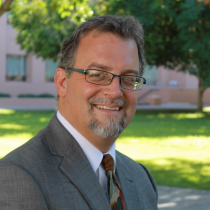Project Details
Energy infrastructure investments in Sierra Leone
Improving social and economic impact of energy infrastructure investments in Sierra Leone through enhancement of social value creation, capacity-building, and decision support
Background, challenges and context
Most energy investments, projects, and research focus on increasing the delivery of energy and/or developing the technologies and technological systems needed to deliver energy effectively, efficiently, or sustainably. But while the technology is well understood, successful strategies for translating access to energy into sustainable development are significantly less well understood.
Far too often, energy projects operate on the assumption that if energy technologies are built and deliver energy, then the social and economic benefits of energy access will flow automatically to the recipients, users, and consumers of that energy. Over time, however, it has become increasingly clear that this assumption is frequently untrue.
In the coming decades, Sierra Leone intends to significantly upgrade its energy infrastructure to provide a firm foundation for economic development, social welfare, and long-term sustainability. There is a need for research that can help increase the social and economic impact of energy projects, especially with regards to locally significant forms of value creation, including new jobs and businesses, business growth, and local sustainable development. There is also a need for new tools and methods that can enhance support for decision-making, policy development, and technology design.
Research overview and objectives
This project will research social and economic practices, arrangements, and strategies for translating energy use into economically productive and socially valuable outcomes and, ultimately, into social and economic development. It will examine how energy investments and projects can more effectively create industry growth, business and household income, and significant non-economic forms of social value.
It reverses the traditional priority given to techno-economics (what technology to use and how much it will cost) in favour of giving priority to the social value of energy and how such value can be achieved. The social value of energy is defined in terms of the diverse social and economic benefits derived from using energy productively, less the costs of energy and any risks or burdens that novel energy systems impose on people.
There are three core questions:
-
What are the productive uses of energy, their value propositions, and the services required to deliver them effectively and affordably?
-
What implications do the productive uses of energy have for energy demand and socio-economic development at the community level?
-
How can energy improvement projects increase the productive uses of energy through bottom-up (community-driven) and top-down (energy provider-driven) energy innovation strategies?
The research will be both analytical, assessing the social and economic outcomes of existing energy projects and upgrades and the social and economic practices, arrangements, and strategies that led to those outcomes, and also anticipatory, contributing insights to how future energy investments can be better designed, socially and economically, to improve sustainable development outcomes.
The project involves five research sites in Sierra Leone, each one consisting of one or more energy investments or projects aimed at improving energy access, reliability, or service delivery. The sites will include the Freetown grid, which remains the most significant energy system in the country; the Bo-Kenema grid expansion and reliability project, which is one of the most important investments in improving energy access and reliability currently underway in the country; a mini-grid project or other distributed energy project being carried out in an area with grid access; a second mini-grid project being carried out in an area without grid access; and a community with no electricity access.
For each site, a robust assessment of social value creation will be conducted, using a comprehensive, multi-level framework created at Arizona State University using theories of the social practices of energy consumption, the socio-technical design of energy systems, and the social planning of energy initiatives.
The team will conduct an ongoing capacity building and training initiative to prepare energy professionals at national and local levels to use the concepts, ideas, and findings of the research effectively to enhance the social and economic impact of national and local energy projects and policies in Sierra Leone. Software based tools will be created and disseminated to support organisational decision-making and the formation of an online network of communication and learning among energy professionals.
The project will help increase the overall value and impact of energy projects and investments by ensuring their design reflects research on the best practices, arrangements, and strategies for translating energy use into sustainable development outcomes.
Local partner
Center for Economic Research and Capacity Building (CERCB), a local NGO

